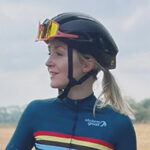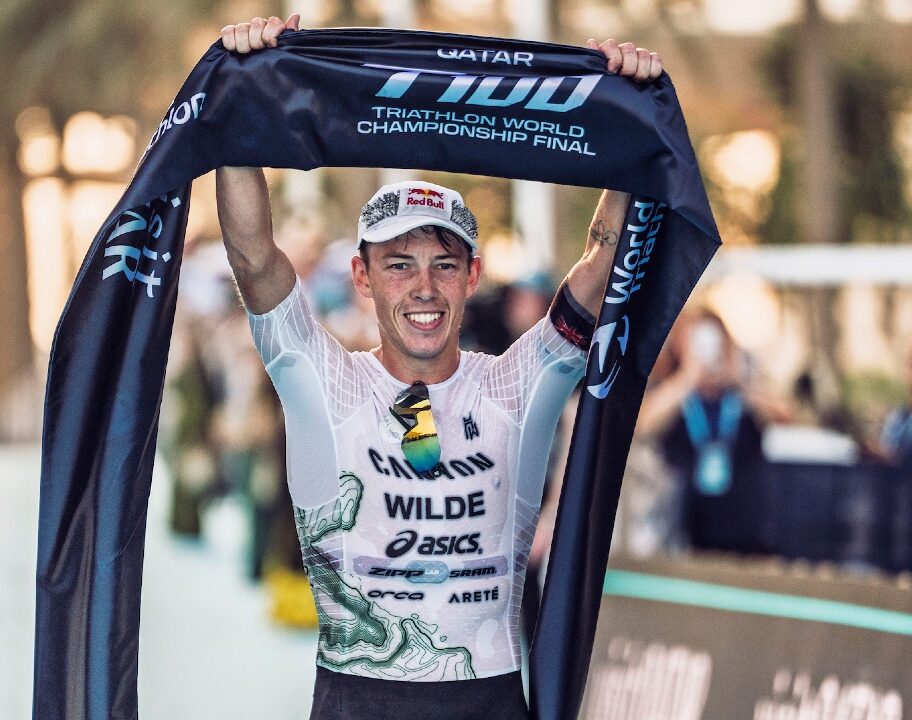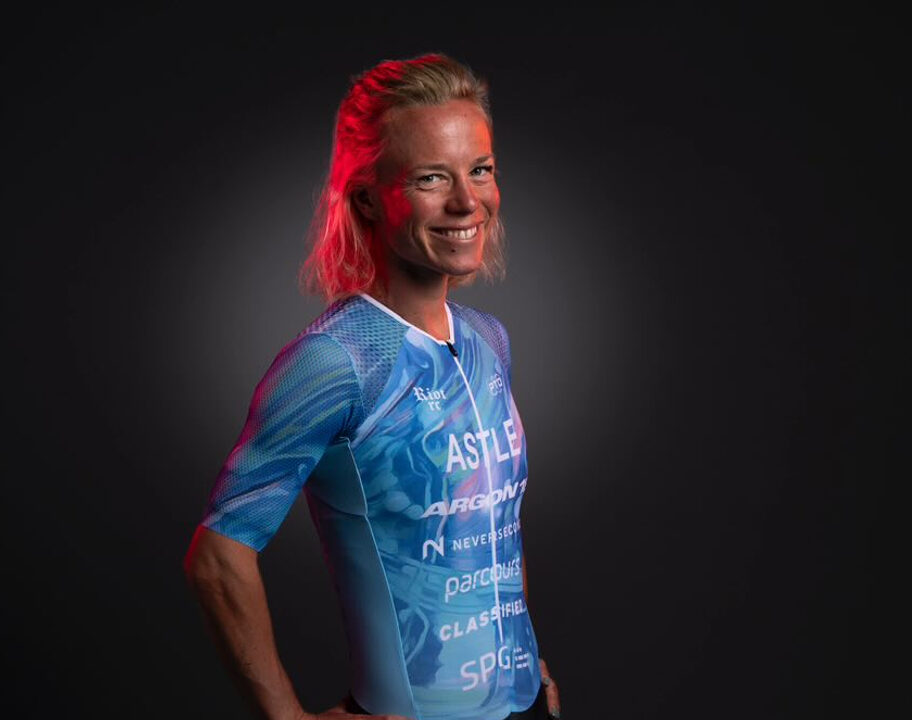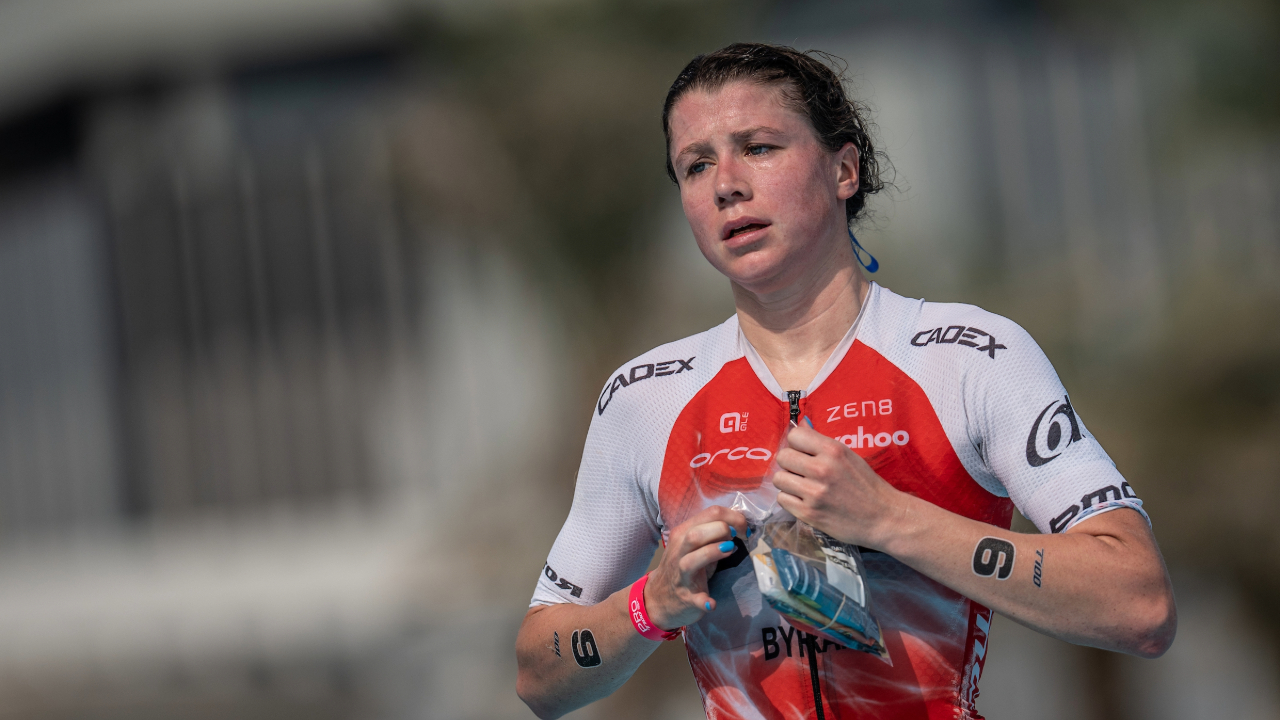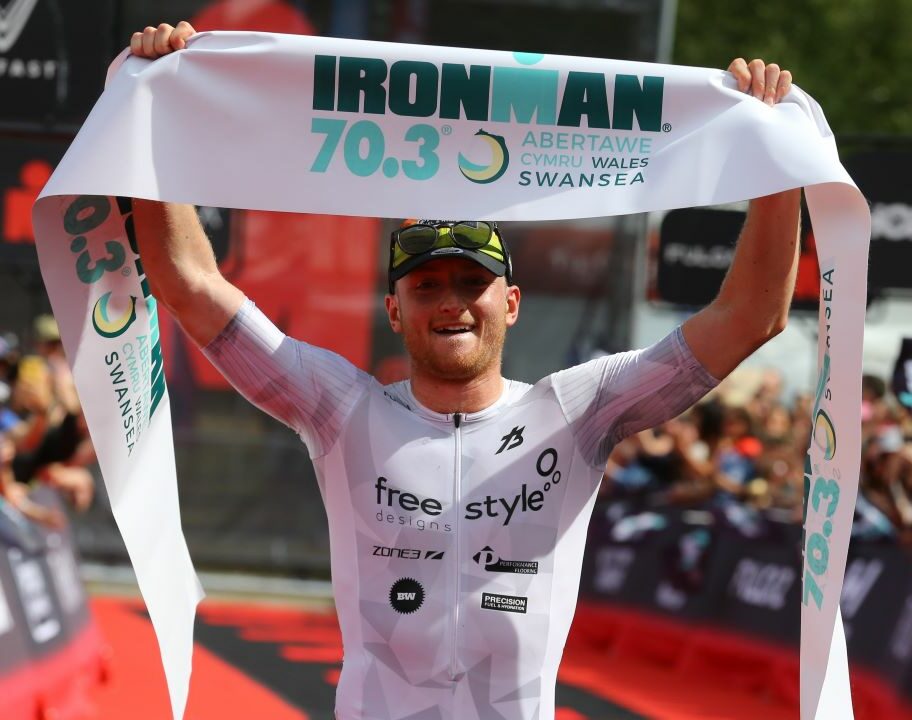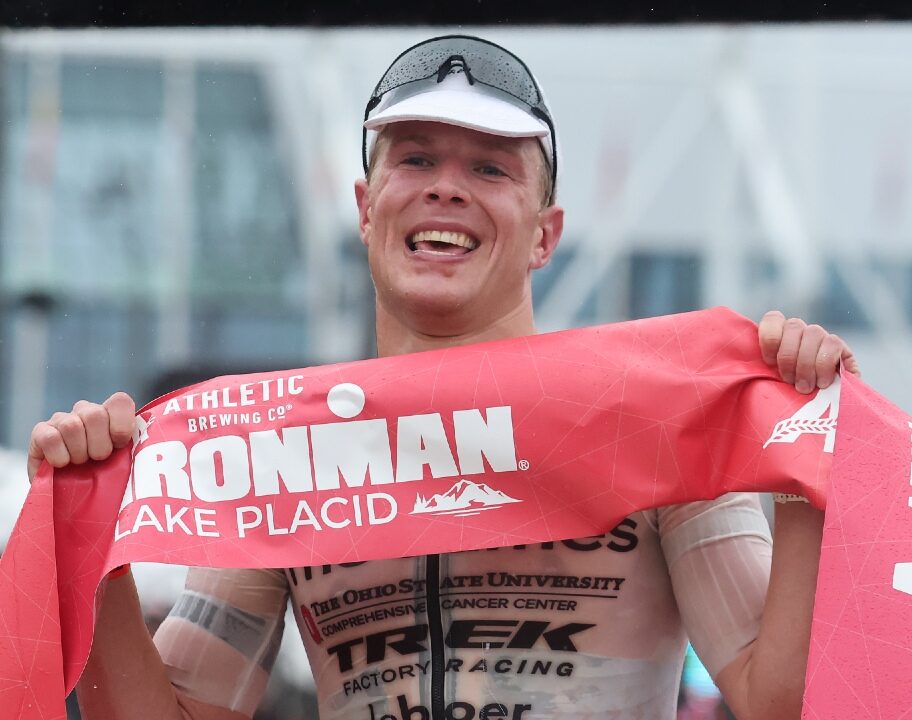Swimming: The triathlon discipline that most of us age-groupers love to hate. With swimming being such a technical sport, making improvements in the water can feel like you’re swimming upstream. It’s hard work, it takes time. And sometimes, despite all your hard work in the pool, the second you get into open water or find yourself in a race situation – you can end up feeling like you’ve not made any progress at all. Frustrating!
So what the front-crawl is going on? We spoke to expert swim coach Lucas David, a National Champion swimmer himself, to find out what are the most common mistakes age group triathletes are making in their swim training – and how to fix them.
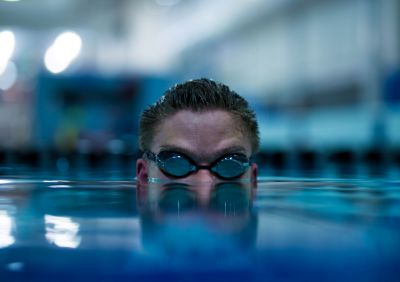
Mistake #1: Not training with focus and specificity in open water
“A super common mistake a lot of triathletes make is not training with any specificity when they swim open water,” Lucas explains. “How you train is how you race, so if you’re not practicing swimming at your target race pace in training – you’re going to struggle to achieve it come race day!”

Plenty of us are guilty of getting into open water and just swimming at one steady pace for a set time or distance, and getting out again. But the reality is, in a race situation you need to be far more dynamic. Being able to get out fast and settle into your target pace to get clear water. Put in a short surge to overtake someone. And of course, actually train your body to hold your target pace in open water while also managing sighting and changeable water conditions. All of that needs to be practiced in training – so it’s time to start having structure and focus for your open water sessions, like you would for the pool.
“Anyone can do volume, but open water time is often rare and incredibly valuable. So we need to be as race specific as possible!”
Mistake #2: Over rotating
A wetsuit can help to compensate for a multitude of swimming sins – namely sinky legs – thanks to the added buoyancy. But that doesn’t mean you don’t need to be thinking about your form and technique when you’re swimming open water, says Lucas.
“Over rotation of the hips can really slow you down. Even with a wetsuit, over rotating will destroy your body position and disrupt your stroke.”
“It’s worth practicing with a snorkel in open water so you can focus on keeping your body stable.”
Focusing on your technique and maintaining a stable position will help you to swim faster and more efficiently in open water.
Mistake #3: Sighting too high in open water
Sighting efficiently is an important skill for open water swimming – especially in a race where you want to make sure you’re staying on course and taking the fastest line. Once you add in hundreds of other swimmers and choppy water, you can quite easily swim way off-piste and cost yourself huge chunks of time.
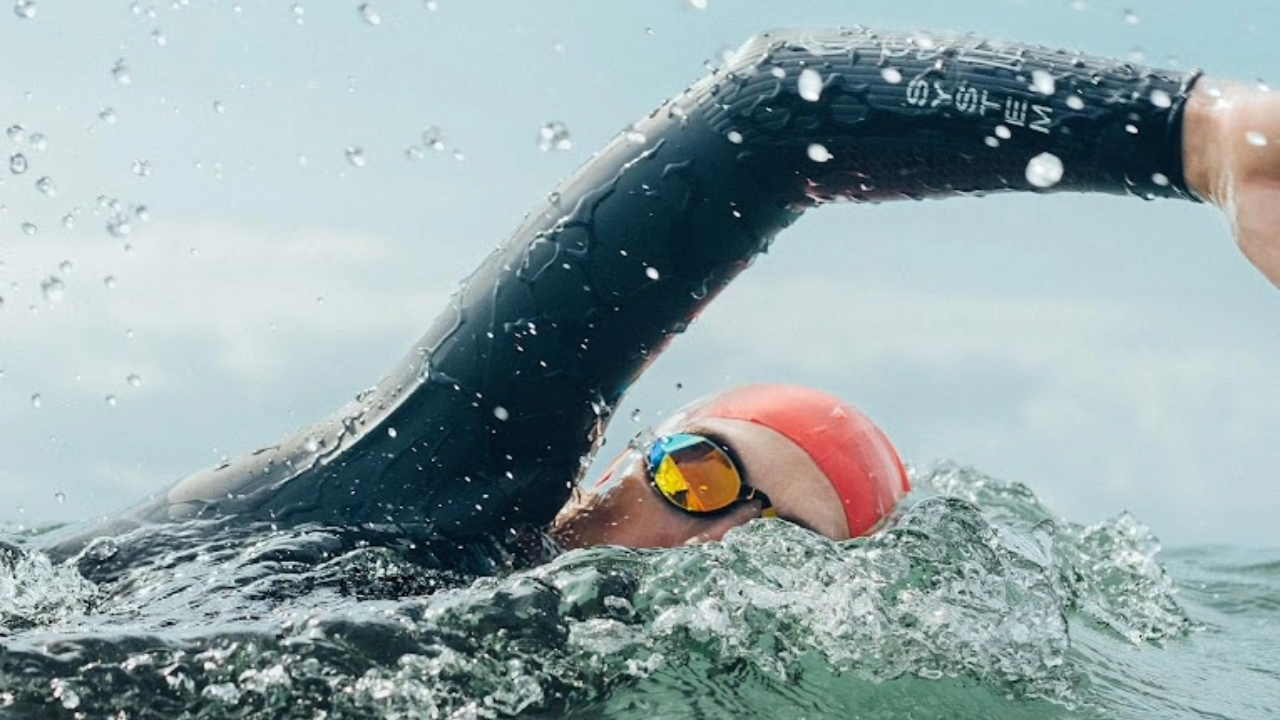
But it’s important to actually practice your sighting technique to make sure it’s not disrupting your stroke and slowing you down. “When you’re sighting, if you look too high then it’ll make your body sink,” says Lucas. “This not only slows you down. It will also quite quickly exhaust you, and it also leaves you open to the chop and waves from other swimmers.”
“To get better at sighting more efficiently, you can practice sighting without actually breathing as a drill. Just bring your eyes up above the surface of the water, then get your head landing in your regular breathing position.”
If thought of ‘missing’ a breath in open water makes you nervous, it’s worth practicing the sighting drill in the pool first to build up your confidence and then you’ll find it easier to do it in open water.
So there we have it – three actually quite simple things to focus on that could make a big difference with your open water swimming. Train in open water with race specificity. Focus on your technique and avoid over rotating. And keep that head lower while you’re sighting to avoid sinking legs that’ll put on the brakes – or accidentally getting a mouthful of water!
Want more swim tips? Check out Lucas’ advice on how to improve your swimming speed and endurance to level up your Ironman swim split.
